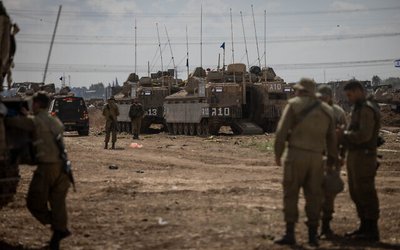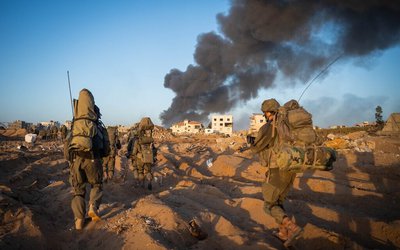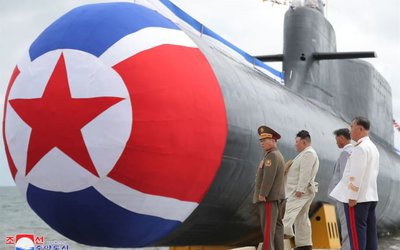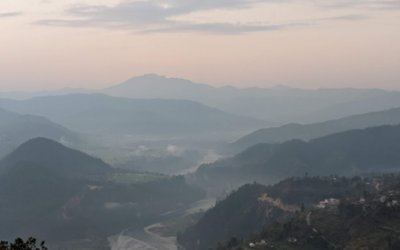
The moment you get out of the Shahjalal International Airport in Dhaka, there are two things that grip your attention immediately: the people and the traffic. Home to about 17 million people, Dhaka has one of the highest population densities in the world. Add to that, traffic snarls which can turn a mere 15 minutes of your journey intotwo hours, and what you get is a chaotic,crowded, bustling megacity.
Development in Dhaka
Since it’s birth in 1971, Bangladesh has travelled through a political rollercoaster. Post the assassination of its founder Sheikh Mujibur Rahman, the country plunged into a prolonged political instability witnessing a number of coups, counter coups and assassination of its leaders. Although the country has seen an end to coups and assassinations in recent years, political stability is still a distant dream. One of the consequences of this has been constant strikes, popularly known as Hartals. In a rather unconventional data, in 2010, the country witnessed its 1193rdHartal. The strikes are mostly called by labour unions belonging to either the Bangladesh Awami League or the Bangladesh Nationalist Party.
Despite the political turmoil, the level of development Dhaka has managed to achieve in the short span of time, is commendable. While one of the two zones of the city – Dhaka South still exudes images of Dhaka’s older days with its narrow roads, age old eateries and wholesale markets, the Northern part of the city is no less than any other South Asian suburb. The roads are wide and the area is planned with a lot of greenery around. Fly-overs have been constructed in an attempt to manage the chaotic traffic and sky scrapers bearing hoarding boards of various multinational brands can be spotted. According to reports, the capital city is one of the fastest growing start-up hubs in the world. It also has one of the largest concentrations of multinational companies in South Asia.In response to the environmental concerns resulting from the large number of vehicles, the government has even taken measures likeintroducingauto-rickshaws that run on Carbon Neutral Gas (CNG). Thanks to the number of textile industries, the economy is thriving (the export of garments from Dhaka amounted to over $19 billion in 2013).
The Flip Side
However, the rapid urbanization has not come without its share of problems. The main problem is the rising population. The population of the city has been growing at a staggering rate of 3.6 percent. The city’s current public transport and accommodation facilities are not enough to accommodate the rising population. As a result, crowded public vehicles and slums are a common sight. A third of the city’s population live in slums currently. Walking in the footpaths becomes impassable and growing pollution in three of the city’s surrounding rivers has been creating serious environmental concerns.
Duplicate Original
If you love shopping, then Dhaka is the ultimate place to be. Thanks to its huge garment manufacturing industry, readymade clothes come at a very cheap price. In 2013, Bangladesh exported nearly $31 billion of goods overall - nearly twice what it did just four years earlier in 2009. About 90% of that value, some $28 billion, came from clothes. It was then recorded as the world’s second largest garment exporter.
When I entered one of the famous shopping complexes, I found myself surrounded by small shops selling branded names. Curious as to whether they were original, I asked one of the shopkeepers. “Sir, this is original, of course”, he replied. When I checked one of the shirts, I found a Tommy Hilfiger sign on the front pocket, an H&M tag on the collar and a Zara sign on the sleeves. How original, I thought!
The Booze Issue
After a hard day’s work, me and my colleague decided to unwind with a few drinks. While we had heard that alcohol was prohibited in the city, we werehoping to find at least a bar.But after taking a two hour stroll around the city, we gave up. Frustrated, we returned to our hotel to find out that there was a barin the hotel. But there were two problems - first, the alcohol was seven times the normal price. Second, the bar was so dimly lit, you could hardly see your friend sitting in the same table. We were so tired, we decided not to fuss over it and rather enjoy our ‘expensive’ drinks!
- Ukrainian Crisis And The World (Dis)Order
- Apr 22, 2022
- China’s Cautious Steps In The Graveyard Of Empires
- Aug 18, 2021
- Foreign Aid On The Fence!
- Aug 08, 2021
- Communist Party of China centenary celebrations Reading between the lips
- Jul 14, 2021
- Second Wave Of Covid-19 In India: Deadly Blow To The Economy
- Jun 23, 2021

















